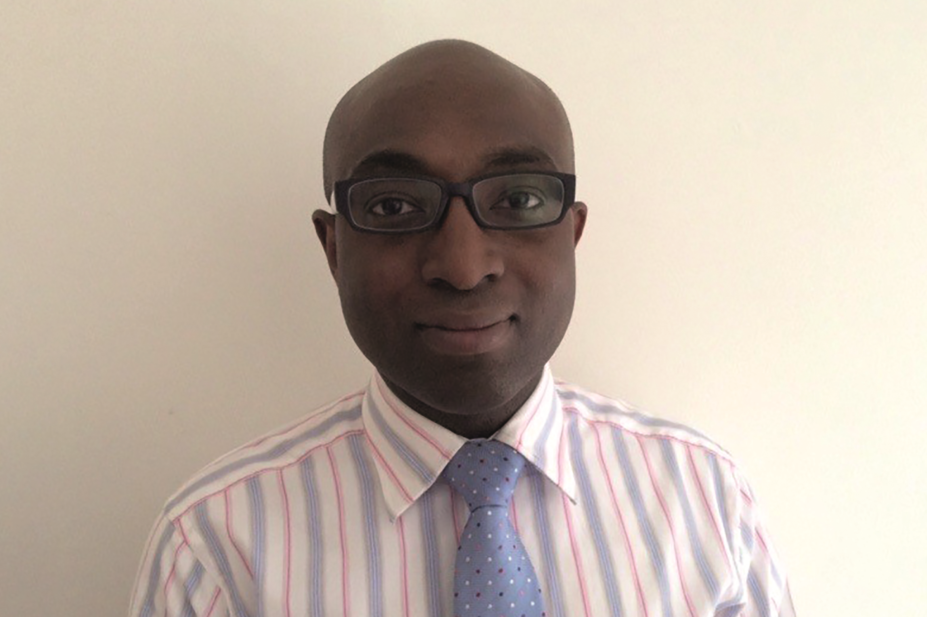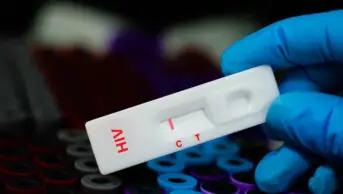
Courtesy of Ade Williams
Ade Williams is superintendent pharmacist at the multi-award winning Bedminster Pharmacy, an independent healthy living pharmacy in Bristol. He was most recently named the UK Community Pharmacist and Manager of the year 2017 by Chemist & Druggist.
How were your early years of practice?
After graduating from the University of Portsmouth in 2002, I completed my pre-registration training with HA McParland Pharmacies, an independent pharmacy group. My tutor, Ayebee Ooi, and the team provided me with a supportive learning environment. After registering in 2003, I started working for Tesco Pharmacy, Didcot, Oxfordshire, where I learnt the importance of being personable in all patient interactions. At the same time I was able to commence the Canadian Pharmacist Qualification process. I had undertaken an undergraduate exchange placement in the United States in 2001 but found the Canadian healthcare system more attractive. I was an admirer of the Canadian health pioneer Thomas Douglas — his government introduced the continent’s first single-payer, universal healthcare programme.
What is your current role and how did you get there?
Currently, I am superintendent pharmacist at Bedminster Pharmacy, an award-winning healthy living pharmacy in South Bristol. I became the resident pharmacist in September 2013 following a transfer of the business contract. Previously, I had been working for a number of years as a locum pharmacist, where I’d had the opportunity to work with various community pharmacy contractors, multiples and independent pharmacies. As a locum, my daily success always hinged on the collective professionalism and competence of the team. These individuals became valuable friends, teachers and mentors. A locum role also allowed ease of travel to Canada to complete my Canadian qualification exams in 2005. However, the arduous qualification process had dampened my enthusiasm for relocating. In addition, new models of delivering pharmaceutical care were emerging and ways of using the expertise of community pharmacists were being developed here in Great Britain. The funded services linked to this practice were also changing and reforming.
What does a typical day in your role look like?
Our technician is our team leader and decides how to approach the daily dispensing tasks. Our pre-registration pharmacist and healthy living champion will co-ordinate the resolution of outstanding clinical queries and various patient requests that require pharmacist input. The day will involve consultations with clinicians and patients, usually answering their queries or providing medicines optimisation-related services. We also run and pilot health screening services commissioned by the NHS or in partnership with charities and private pharmaceutical services. As a specialist incontinence and mobility pharmacy, we offer patients the benefit of our expertise to resolve both the clinical and practical challenges they face. We are very active in the community, with a multi-lingual service model.
I also serve as a director of the local business improvement district, which aims to address individual and community matters. Training and team development is something to be developed and, when appropriate, I encourage my pre-registration pharmacist to be involved in clinical and patient deliberations. I appreciate their expertise and knowledge and know they are able to offer great insights, which reflect their life experiences and intellect. Increasingly, community pharmacy is the interface between public health, primary care and social care. Existing challenges will always benefit from some fresh insight.
What do you enjoy most about your work and of which achievements are you most proud?
When I joined Bedminster pharmacy in 2013, it had not previously offered a patient-centred model of care. Therefore, the ongoing aim for us as a team is to become an easily accessible NHS community outpost. This relies on the collective knowledge and expertise of the team. We do this in a fun but professional manner. I enjoy working with individuals who are great patient advocates and witnessing their development over time is truly inspiring. Our small team has recently been widely recognised for their work, winning various awards, but nothing beats knowing that you have contributed positively to a patient’s life. My pre-registration colleagues have always been outstanding. They confidently embrace our model of care and help to shape and improve the team. The healthy living pharmacy ethos is the key to our journey. With the current pressures facing our small independent community pharmacy, we will hold on to that ethos as we make difficult decisions about our future.
What benefits do you think training pre-registration trainees and also public speaking opportunities at conferences have brought to your career?
As a pre-registration tutor I am able to influence and shape someone’s career journey. My own tutor was exceptional and throughout my career I have benefited from the generosity of individuals including Professor Rob Darracott, former chief executive of Pharmacy Voice and Dr Knut Schroeder, GP and Founder & Director of Expert Self Care Ltd, who broadened my understanding while offering invaluable feedback. My trainees know I trust and respect them to shape my practice, which facilitates reciprocal input. I also actively find ways to broaden their understanding of the pharmacy profession and allow them to lead. Our profession needs more leaders.
Public speaking at conferences is a new role for me and has allowed me to share the stories of my team and patients. Telling these stories helps focus minds on how we can remove inter-professional barriers and ensure that the community pharmacy network is financially sustainable. This is key to the delivery of exceptional care in the community.
What is the best piece of advice you have received during your career that you could offer to pre-registration pharmacists and qualified pharmacists?
I am at present completing a prescribing course, which has been very difficult. I have found myself having to redo tasks and accept that in some instances, my initial effort may not be deemed good enough. I draw solace from knowing that there is always something you can do to improve a situation, or yourself. You must be willing to be the catalyst for change. The journey to improve or affect change may be filled with challenges; however, imagine how inspiring it will be for the next person who sets off to do something similar. I encourage my pre-registration pharmacists to believe in their ability to improve practice wherever they are. Walking alongside them during their 52-week journey has certainly motivated me to return to academia despite it being no easy step, even at the best of times — and now that I have a three-month-old baby, even less so.
What do you hope to achieve in the future?
I hope to complete the prescribing course soon. I also hope to see a return of the optimism and vision that has shaped the profession return. There is a feeling of underappreciation and weariness among pharmacists across all sectors. I believe the resourcefulness and broad expertise pharmacists offer, if fully harnessed, can bring immeasurable benefit to patients and the health system. I hope that I have helped create a narrative reflective of my Christian faith and values. I certainly do not wish to look back and ask why I did not make the move to Canada.

